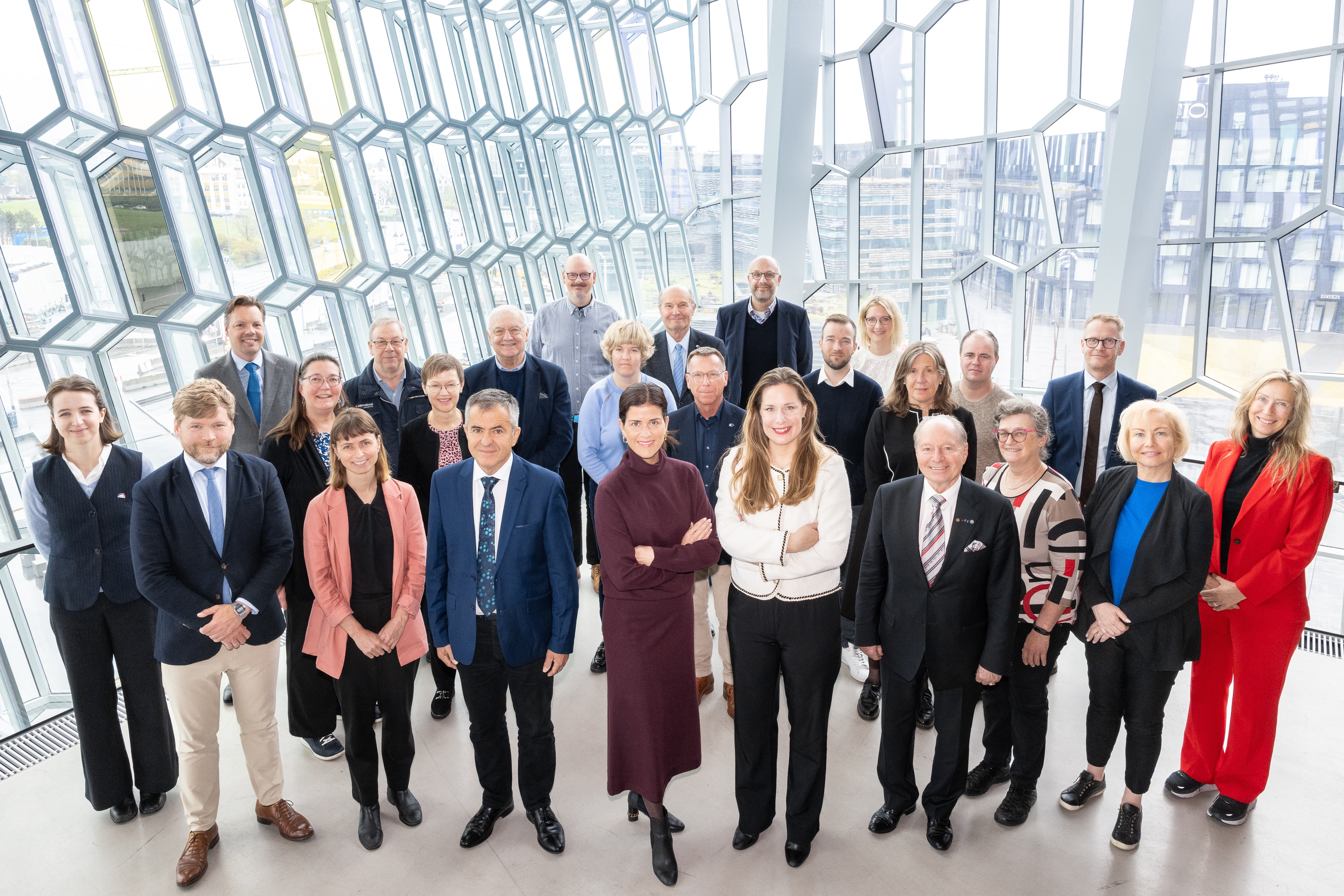
Minister for Foreign Affairs of Iceland Þórdís Kolbrún Reykfjörð Gylfadóttir in the middle, Ms Sigridur Mogensen (on her right), Dr István Komoróczki (on her left) and representatives from the EEA Consultative Committee.

Minister for Foreign Affairs of Iceland Þórdís Kolbrún Reykfjörð Gylfadóttir in the middle, Ms Sigridur Mogensen (on her right), Dr István Komoróczki (on her left) and representatives from the EEA Consultative Committee.
Social partners from across the EEA met for the 33rd time in Reykjavik, Iceland on 23 and 24 May for the annual plenary session of the EEA Consultative Committee. They discussed a resolution and report on 30 years of cooperation under the EEA Agreement, as well as safeguarding economic security while fostering competitiveness, and fighting disinformation against the backdrop of the forthcoming European elections.
The meeting brought together representatives of workers' and employers' organisations and other interest groups from the EU and the EEA EFTA States. It was co-chaired by Sigríður Mogensen from the EFTA Consultative Committee and Dr István Komoróczki from the European Economic and Social Committee (EESC).
30 years of cooperation under the EEA Agreement
In its resolution and report on 30 years of EEA cooperation, the EEA Consultative Committee underlined the importance of involving social partners and civil society organisations in the future of EEA cooperation. The report, drafted by Kim Sivertsen on the EFTA side and Ellen Nygren from the EESC, also identified the main benefits and challenges of the EEA Agreement.
During the meeting, the social partners held a discussion with Þórdís Kolbrún Reykfjörð Gylfadóttir, Minister for Foreign Affairs of Iceland, on how to best preserve economic security and improve competitiveness. Referring to the fact that the EEA Agreement was the backbone of Europe’s competitiveness, Minister Gylfadóttir highlighted the many ways in which Iceland had benefited from the EEA Agreement, underlining the importance of continued cooperation despite the challenges.
She stressed: “The EEA Agreement works as a highway for Iceland. And despite a couple of stones in the way, we do not want the gravel roads and the isolative way of life that we used to have back.”
The Committee also discussed the forthcoming European elections and the fight against disinformation, following an introduction by Dr István Komoróczki, who referred to a Resolution and Opinion by the EESC on both matters. Further, Dr Gunnar Thor Pétursson, Professor of Law and former Director of the EFTA Surveillance Authority, briefed the Committee on a European Commission Report comparing decisions of the Court of Justice of the European Union and the EFTA Court in the field of social security.
The EEA Consultative Committee is an advisory body made up of members of the EFTA Consultative Committee and the EESC. The Committee works to strengthen contacts between social partners on both sides and to cooperate in an organised and regular manner to enhance awareness of, and provide input on, the economic and social aspects of the EEA.